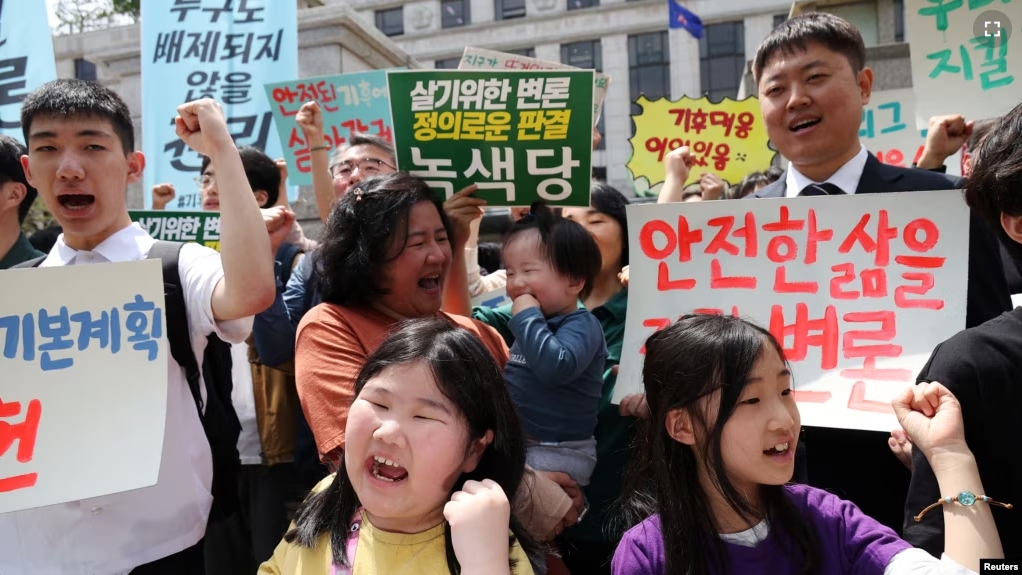South Korea’s Constitutional Court has begun hearing a case that accuses the government of failing to protect 200 people by not dealing with climate change.
The case, which began Tuesday in Seoul, includes many young environmental activists and children.
The people bringing the legal action, or the plaintiffs, said the case was Asia’s first climate-related case. It includes four petitions by children and babies among others dating from 2020. There is also a petition from a fetus at the time the case was brought to court, nicknamed “Woodpecker.”
Lee Jongseok said climate lawsuits are getting popular around the world and are gaining public interest. Lee is the president of the court, which is one of the highest in South Korea.
“The court recognizes the importance and public interest of this case and will make efforts to ensure that deliberations are conducted thoroughly,” he said.
Earlier this month, Europe’s human rights court ruled on another climate-related case. The court found the Swiss government had violated its citizens’ rights by not doing enough to combat climate change. Courts in Australia, Brazil and Peru are also hearing similar cases.
The plaintiffs said in a statement that South Korea’s climate plans are not enough to keep the world’s average temperature increase within 1.5 degrees Celsius of “pre-industrial” levels. The government’s failure violates “fundamental rights,” the statement said.
Climate scientists say if the average world temperature rises more than 1.5 degrees Celsius, there will be results that cannot be changed. These scientists say large ice sheets will melt and ocean currents will stop.
Burning of fossil fuels, such as oil, gas and coal, results in carbon emissions. These warm gases are being blamed for the warming of the land and sea. South Korea’s economy depends on fossil fuels for growth. However, South Korea has sought to reach carbon neutrality by 2050.
Government lawyers told the court that the government was doing everything possible to reduce carbon emissions and not violate the basic rights of its people. They added that the government did not discriminate against young people, and there could be changes to yearly goals on carbon reduction.
Several activists said the government’s answer was disappointing.
A group of young people, including Woodpecker, who is now one year old, gathered outside the court. Some criticized what they called the government’s inaction on climate change.
“Carbon emission reduction keeps getting pushed back as if it is homework that can be done later,” said the baby’s mother, Lee Donghyun. “But that burden will be what our children have to bear eventually.”
The mother of one eight-year-old plaintiff said her children live in fear of the effects of climate change.
“Because there’s a mountain behind our house, the kids say our house can get hit by a landslide. And who knows? That can happen,” she said.
Last year, South Korea lowered its 2030 targets for greenhouse gas reductions. But it kept its national goal of cutting emissions by 40 percent of 2018 levels, calling the move a reasonable change.
I’m Dan Novak.
Dan Novak adapted this story for VOA Learning English based on reporting by Reuters.
____________________________________________________
Words in This Story
petition — n. a request that is signed by citizens who are asking that the government take action on an issue
deliberation — n. careful and thoughtful consideration
thorough — adj. complete
fundamental — n. something that serves as the basis for other things
emissions — n.(pl.) gases released by a process
carbon neutral — adj. neither adding nor taking away carbon
burden — v. a heavy weight or responsibility
